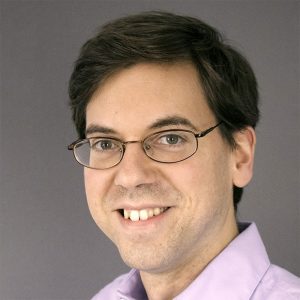
Ron Alterovitz
Professor
Director of Graduate Admissions
(99) Ph.D. 2006, UC Berkeley. Medical robotics; motion planning; physically-based simulation; assistive robotics; medical image analysis.
Contact
254 Brooks Building
919-590-6068 Phone
919-590-6105 Fax
http://www.cs.unc.edu/~ron
Biography
Ron Alterovitz joined the faculty of the Department of Computer Science at the University of North Carolina at Chapel Hill in 2009. He leads the Computational Robotics Research Group, which addresses fundamental algorithmic challenges required to enable robots to safely and autonomously complete tasks in clinical and home environments. His research focuses on robot motion planning and physically-based simulation for medical and assistive robotics applications, including surgical assistance, treatment planning, medical image registration, physician training, and personal assistance.
Dr. Alterovitz earned his B.S. with Honors from Caltech in 2001. He completed his Ph.D. at the University of California, Berkeley in 2006 in Industrial Engineering and Operations Research. Prior to joining UNC, he was selected for an NIH Postdoctoral Research Fellowship and conducted research at the Electrical Engineering and Computer Sciences Department at UC Berkeley and the UCSF Comprehensive Cancer Center. He also spent a year with the Robotics and AI group at LAAS-CNRS (National Center for Scientific Research) in Toulouse, France.
Dr. Alterovitz has co-authored a book on Motion Planning in Medicine, was awarded a patent for a medical device, and has presented his work in journals and conferences sponsored by robotics, engineering, and medical associations including IEEE, the American Association of Physicists in Medicine, and the American Brachytherapy Society. He has received an IEEE Intelligent Robots and Systems (IROS) Best Paper Finalist award, an IEEE Robotics and Automation (ICRA) Best Medical Robotics Paper Finalist award, and the Computer Science Department’s Excellence in Teaching Award. His research has been funded through awards from NIH, NSF, and DOD.
